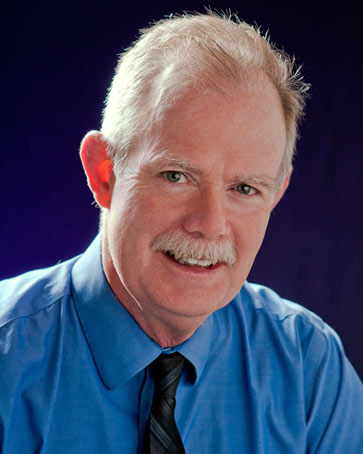
Edward
Dwyer-O’Connor
UW Medicine – Harborview Medical Center Downtown Programs
Nominated by Frances Marshall, Assistant Administrator, Ambulatory and Allied Care Services
Awarded 2014
We are honored to nominate Edward Dwyer-O’Connor for the David B. Thorud Leadership Award. We believe that Ed daily demonstrates leadership in all areas of the award criteria that includes providing quality work while including others, valuing and respecting the well-being of others, and openness to new ideas and partnerships.
Ed is the Senior Manager of the Downtown Programs at UW Medicine – Harborview Medical Center which serves homeless and low-income populations in multiple locations and services across the downtown core. Harborview staff also are embedded within existing external support and social service entities which serve homeless and low income residents. Staff engage and assist clients who are already accessing aid or support at these agencies.
The “home” for these services is the Pioneer Square Clinic, which has provided primary care in downtown Seattle since 1971. Located close to six shelters, the major day center for adults and several single resident occupancy hotels, as well as many units of low-income housing, the clinic provides more than 8,300 annual medical visits. The clinic has developed a model that “meets patients where they are” in order to care for them — they are not turned away for failure to take medications or for lack of sobriety. In 2013 the clinic received Seattle Business Magazine’s Leaders in HealthCare Award for Community Outreach. The clinic was recognized for making “services available where patients already seek shelter and child care, operating at hours when they are truly needed, such as in the early morning.”
Harnessing his strong homeless advocacy, Ed forges partnership with community-based and governmental agencies to knit a strong safety net for the region’s most vulnerable populations. One of his most recent accomplishments was to join with Seattle King County Public Health and area hospitals to design and implement the Edward Thomas Medical Respite Program at Jefferson Terrace. The Edward Thomas House opened in September 2011 as a free-standing 24 hour by 7 day, 34 bed medical respite program for homeless patients with acute care needs who were too sick for the streets or shelters, but not sick enough to remain in the hospital.
Using a harm reduction model, Ed’s team provides medical and nursing services to homeless patients discharged from one of many area hospitals who are too sick for the streets but no longer qualify for inpatient status. During their stay at the Edward Thomas House, Ed’s team also assures these patients are connected to temporary and permanent housing, and linked with mental illness and chemical dependency services. The goal is to stop the cycle of homeless to the hospital and back to the street. In order for the Edward Thomas house to succeed, Ed and his team have formed strong partnership with the Seattle Housing Authority, Plymouth Housing, faith-based homeless shelters, Downtown Emergency Support Center, Public Health, and others.
Since opening medical respite, the success is evident by the numbers:
- 875 individuals have received services
- 80% successfully completed their course of treatment
- 40% were successfully enrolled in addictions treatment
- 30% were discharged to transitional or permanent housing
As another example of Ed’s innovation in serving the homeless, he recognized that this population rarely has access to needed palliative care services when they are chronically or terminally ill merely because they don’t have a roof. Ed and his medical director forged a partnership with the UW Medicine Palliative Care Program so patients’ end of life needs could be addressed humanely and with compassion. The program is designed to relieve seriously ill patients’ pain, stress and symptoms. Now, patients receive palliative care consultations in a clinic setting, shelter, or public housing to support them during periods of transition.
One of the foundations of all of Ed’s programs is staff and provider safety. He recognizes that it is impossible to care for vulnerable patients if employees are worried about their safety. Ed addresses this by being a leader in Crisis Prevention Institute training. Ed was instrumental in bringing the class to Harborview and directly taught it for several years. Ed facilitates workshops in de-escalation techniques which have been very successful at not only promoting a safe work environment but also keeping patients who skirt the boundaries of acceptable behavior engaged in care.
Overall, Ed has committed his professional career to the care of vulnerable and mentally ill populations over the last 25 plus years. He started his nursing career caring for the acutely mentally ill. He was an outreach nurse case manager for homeless acute mentally ill substance abusers in downtown Seattle where he developed an intensive case management model for this hard to serve client population. He managed the day to day operations of Harborview’s Psychiatric Emergency Services for close to 10 years prior to becoming senior manager of the Downtown Programs.
We know that Seattle’s homeless populations have benefited from Ed’s commitment to service and leadership, especially in the area of building partnerships to serve as a safety net. Ed’s leadership also has been recognized nationally — he was recently elected to the National Respite Care Providers Network Steering Committee as part of the Health Care for the Homeless Network.
Ed’s exceptional leadership and commitment to the homeless population make him an ideal candidate for the David B. Thorud Leadership Award. We thank you for considering Ed for this award!